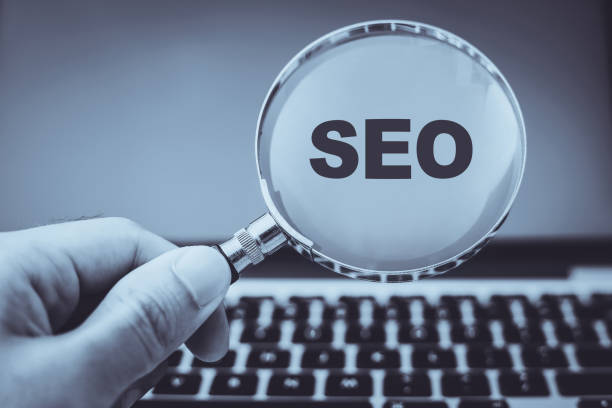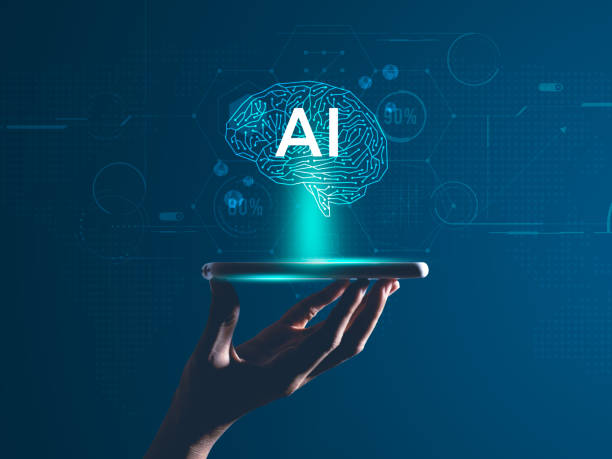What is SEO and why is it important for your business?

What is SEO and why is it important for your business?
#SEO or Search Engine Optimization is a process performed to improve a website’s ranking in search engine results like Google, Bing, and Yahoo.
The main goal of SEO is to increase organic (unpaid) traffic to the website.
This traffic comes from users looking for products or services related to your business.
The importance of SEO for businesses is due to the following reasons:
- Increased Visibility Ranking high in search results makes your website more visible and attracts more users.
- Attracting Targeted Traffic Users who reach your website through search are very likely looking for products or services you offer.
This targeted traffic increases the probability of converting visitors into customers. - Building Trust Websites that rank high in search results are usually considered more reputable and trustworthy.
- Reduced Marketing Costs Compared to paid advertising methods like Pay-Per-Click (PPC), SEO can be a more cost-effective solution for attracting traffic.
- Improved User Experience The SEO process includes optimizing the website to provide a better user experience, which can lead to increased user satisfaction and reduced bounce rates.
In summary, SEO is a long-term investment that can help your business grow, attract more customers, and ultimately increase its profitability.
Optimizing for search engines is a necessity for survival in today’s competitive world.
If you ignore SEO, you will miss out on many opportunities.
Do you dream of a thriving online store but don’t know where to start?
RasaWeb is your comprehensive solution for e-commerce website design.
✅ Attractive and user-friendly design
✅ Increased sales and revenue⚡ Get Free Consultation
Keyword Research: Finding the Best Phrases to Target

Keyword Research: Finding the Best Phrases to Target
Keyword research is one of the most important stages of SEO.
In this stage, you need to find words that users use to search for products or services related to your business.
These keywords should be relevant, high-volume, and have appropriate competition.
To conduct keyword research, you can use various tools, including:
- Google Keyword Planner is a free tool from Google that helps you find relevant keywords, check their search volume, and assess their competition.
- SEMrush is a paid tool that provides more advanced features for keyword research, competitor analysis, and ranking tracking.
- Ahrefs is another powerful paid tool used for keyword research, backlink analysis, and website analysis.
- Moz Keyword Explorer is a tool from Moz that helps you find relevant keywords, assess the difficulty of ranking for them, and identify SEO opportunities.
When choosing keywords, pay attention to the following points:
- Relevance Keywords should be relevant to your website’s content.
- Search Volume Keywords should have an acceptable search volume to attract sufficient traffic to your website.
- Competition Keywords should not be overly competitive, as ranking for them will be difficult.
- User Intent Try to choose keywords that match the user’s search intent.
For example, if a user is looking to buy a product, keywords like “buy ” or “ price” would be appropriate.
After conducting keyword research, create a list of targeted keywords and use them in your website content, title tags, meta descriptions, and other SEO elements.
On-Page SEO: Optimizing Website Content and Structure

On-Page SEO: Optimizing Website Content and Structure
On-Page SEO refers to the set of actions you take within your website to improve its ranking in search results.
These actions include optimizing content, website structure, title tags, meta descriptions, images, and other website elements.
The most important On-Page SEO factors include:
- Quality Content Your website’s content should be unique, valuable, informative, and relevant to targeted keywords.
Try to create content that answers users’ questions and meets their needs. - Title Tags Title Tags should contain the main keywords of the page and briefly describe the page’s topic.
- Meta Descriptions Meta Descriptions are summaries of the page’s content displayed in search results.
Meta descriptions should be engaging and persuasive to encourage users to click on your website link. - URL Structure The URL structure of your website pages should be simple, readable, and contain relevant keywords.
- Header Tags Use header tags (H1, H2, H3, …) to organize page content and highlight important points.
- Image Optimization Optimize your website images using descriptive file names and alt tags.
- Page Load Speed Page load speed is an important ranking factor in Google.
Try to improve your website’s page load speed using speed optimization tools and image compression. - Responsive Design Your website should be fully responsive and display correctly on various devices such as computers, tablets, and mobile phones.
- Internal Links Use Internal Links to create connections between different pages of your website and improve its structure.
Example SEO Pricing Table:
| Type of SEO Services | Price (Toman) | Description |
|---|---|---|
| Keyword Research | 500,000 – 2,000,000 | Analysis and finding high-volume keywords |
| On-Page SEO | 1,000,000 – 5,000,000 | Optimizing content and website structure |
| Off-Page SEO | 2,000,000 – 10,000,000 | Backlink building and social media activities |
| SEO Consultation | 200,000 – 1,000,000 | Providing SEO solutions and strategy planning |
Off-Page SEO: Backlink Building and Domain Authority Increase

Off-Page SEO: Backlink Building and Domain Authority Increase
Off-Page SEO refers to the set of actions you perform outside your website to improve its ranking in search results.
The most important Off-Page SEO factor is backlink building.
Backlinks are links that point from other websites to your website.
The greater the number and quality of your website’s backlinks, the higher your domain authority will be, and your ranking in search results will improve.
There are various methods for building backlinks, including:
- Creating Quality Content Creating high-quality and valuable content is the best way to attract natural backlinks.
If your content is useful and engaging, other websites will link to it. - Guest Posting Writing guest articles on other websites is an excellent way to earn backlinks and increase brand awareness.
- Participating in Forums and Blogs Participating in forums and blogs related to your industry and providing helpful comments and answers can help you earn backlinks.
- Building Links on Social Media Sharing your website content on social media and engaging with users can help you earn backlinks.
- Advertising Paid advertising can help you attract more traffic and backlinks to your website.
- Buying Backlinks Buying backlinks is a quick way to get backlinks, but it can be dangerous and lead to your website being penalized by Google.
When building backlinks, pay attention to the following points:
- Quality of Backlinks Backlinks should come from reputable websites relevant to your industry.
- Diversity of Backlinks Backlinks should come from various sources.
- Anchor Text Anchor Text is the text that the link points to.
Anchor text should be relevant to the targeted keywords. - Speed of Backlink Building Backlink building should be done gradually and naturally.
In summary, Off-Page SEO is a time-consuming and continuous process that requires effort and patience.
By creating quality content, building reputable backlinks, and being active on social media, you can increase your website’s domain authority and improve its ranking in search results. SEO professionals are always striving to improve website performance.
Tired of your company’s website not getting the visibility it deserves and losing potential customers? Solve this problem forever with professional and effective website design by RasaWeb!
✅ Increase brand credibility and build customer trust
✅ Attract targeted sales leads
⚡ Contact us now for a free consultation!
Technical SEO: Optimizing Website’s Technical Infrastructure

Technical SEO: Optimizing Website’s Technical Infrastructure
Technical SEO refers to optimizing a website’s technical infrastructure to improve its ranking in search results.
Technical SEO includes actions such as optimizing page load speed, fixing crawl errors, creating a sitemap, optimizing for mobile, and other technical aspects.
The most important Technical SEO factors include:
- Page Load Speed Page load speed is an important ranking factor in Google.
Try to improve your website’s page load speed using speed optimization tools and image compression. - Mobile Optimization Your website should be fully responsive and display correctly on various devices such as computers, tablets, and mobile phones.
- Sitemap A Sitemap is an XML file that contains a list of all your website’s pages.
Providing a sitemap to search engines helps them easily find and index your website’s pages. - robots.txt file The robots.txt file tells search engines which pages of your website they should not index.
- SSL certificate Installing an SSL (Secure Sockets Layer) certificate on your website ensures secure communication between your website and users.
Google ranks websites with SSL certificates higher. - Fixing Crawl Errors Crawl Errors are issues that prevent your website’s pages from being indexed by search engines.
Fixing these errors is very important for improving technical SEO. - Canonicalization Canonicalization is a process that tells search engines which version of a page to consider as the primary one.
This prevents the creation of duplicate content. - Structured Data Markup Structured Data Markup is code that helps search engines better understand the content of your website pages.
Using Structured Data Markup can make your website appear more prominently in search results.
In summary, Technical SEO is an important part of SEO that should not be overlooked.
By optimizing your website’s technical infrastructure, you can help search engines easily find and index your website’s pages and improve its ranking in search results.
Competitor Analysis: Identifying Competitors’ Successful Strategies and Failures

Competitor Analysis: Identifying Competitors’ Successful Strategies and Failures
Competitor analysis is one of the important stages in SEO strategy.
By reviewing and analyzing competitor websites, you can identify their successful strategies and learn from their failures.
This information can help you improve your SEO strategy and increase your website’s ranking in search results.
To perform competitor analysis, you can use various tools, including:
- SEMrush is a paid tool that provides advanced features for competitor analysis, including keyword analysis, backlinks, traffic, and other SEO factors.
- Ahrefs is another powerful paid tool used for website analysis, backlink review, and keyword research.
- Moz Link Explorer is a Moz tool that helps you examine competitor backlinks and identify link-building opportunities.
- SimilarWeb is a tool that helps you estimate competitor website traffic and identify their traffic sources.
When analyzing competitors, pay attention to the following:
- Keywords Identify the keywords that competitors are ranking for.
- Backlinks Examine competitor website backlinks and try to acquire backlinks from similar sources.
- Content Review competitor website content and strive to produce higher quality and more comprehensive content.
- Website Structure Analyze competitor website structures and try to optimize your own website’s structure.
- User Experience Evaluate competitor website user experience and try to improve your website’s user experience.
By using the information gained from competitor analysis, you can improve your SEO strategy and increase your website’s ranking in search results. Professional SEO specialists always keep an eye on their competitors.
Measuring and Tracking Results: Using Tools and Key Performance Indicators (KPIs)

Measuring and Tracking Results: Using Tools and Key Performance Indicators (KPIs)
Measuring and tracking SEO results is essential for evaluating the effectiveness of your SEO strategy and identifying its strengths and weaknesses.
By using tools and Key Performance Indicators (KPIs), you can track your website’s performance over time and make better decisions to improve SEO.
The most important tools and Key Performance Indicators (KPIs) for measuring and tracking SEO results include:
- Google Analytics is a free tool from Google that helps you track your website traffic, analyze user behavior, and evaluate the performance of your marketing campaigns.
- Google Search Console is another free tool from Google that helps you track your website’s performance in search results, identify crawl errors, and submit your sitemap to Google.
- SEMrush is a paid tool that provides more advanced features for measuring and tracking SEO results, including keyword ranking tracking, competitor analysis, and backlink review.
- Keyword Ranking Keyword ranking shows your website’s position in search results for targeted keywords.
- Organic Traffic Organic traffic indicates how many visitors enter your website through unpaid search results.
- Conversion Rate Conversion rate shows how many of your website visitors convert into customers.
- Bounce Rate Bounce rate indicates how many of your website visitors leave your website after viewing only one page.
- Time on Site Time on site indicates the average duration visitors spend on your website.
By tracking these indicators, you can evaluate the effectiveness of your SEO strategy and make necessary adjustments if needed.
SEO is a continuous process and requires constant measurement and tracking.
| Metric | Current Status | Target | Change |
|---|---|---|---|
| Keyword Ranking “SEO” | 15 | 5 | -10 |
| Organic Traffic | 5000 | 8000 | +3000 |
| Conversion Rate | 2% | 4% | +2% |
| Bounce Rate | 60% | 40% | -20% |
Latest Google Algorithm Changes and Their Impact on SEO
![]()
Latest Google Algorithm Changes and Their Impact on SEO
Google’s algorithm is constantly changing and updating.
These changes are made with the aim of improving the quality of search results and providing the best answers to user queries.
Awareness of the latest Google algorithm changes and their impact on SEO is essential for success in this field.
SEO means optimizing for Google and its changes.
Some of the most important recent Google algorithm changes include:
- Core Web Vitals This update emphasizes the importance of page load speed, interactivity, and visual stability of a website.
- Mobile-First Indexing Google now indexes most websites based on their mobile version.
Therefore, optimizing your website for mobile is of high importance. - E-A-T (Expertise, Authoritativeness, Trustworthiness) Google values the expertise, authoritativeness, and trustworthiness of content and websites.
- BERT (Bidirectional Encoder Representations from Transformers) This update helps Google better understand the meaning of words and phrases and provide more relevant search results.
- Spam Update Google is constantly fighting spam and low-quality content.
To adapt to these changes, you should pay attention to the following:
- Improve Page Load Speed Improve your website’s page load speed using speed optimization tools and image compression.
- Optimize for Mobile Optimize your website for mobile and use responsive design.
- Create Quality and Valuable Content Create content that answers users’ questions and meets their needs.
- Increase Credibility and Expertise Try to increase your credibility and expertise in your field and provide content that demonstrates your expertise.
- Prevent Spam Avoid producing duplicate and low-quality content and do not use illicit methods to increase your website’s ranking.
By being aware of the latest Google algorithm changes and adapting to them, you can maintain your website’s ranking in search results and attract more traffic.
Google is constantly improving its algorithm to provide the best user experience.
Don’t have a corporate website yet and missing out on online opportunities? With professional corporate website design by RasaWeb,
✅ Double your business credibility
✅ Attract new customers
⚡ Free consultation for your corporate website!
Local SEO: Attracting Customers in a Specific Geographic Area

Local SEO: Attracting Customers in a Specific Geographic Area
Local SEO refers to optimizing your website and online presence to attract customers in a specific geographic area.
Local SEO is very important for local businesses such as restaurants, shops, salons, and other businesses that provide services to local customers.
SEO means attracting customers.
The most important Local SEO factors include:
- Google My Business Creating and optimizing your Google My Business (GMB) profile is one of the most important actions for Local SEO.
In your GMB profile, provide complete and accurate information about your business, including name, address, phone number, business hours, website, and images. - Name, Address, and Phone Number (NAP) Citation Ensure that your business name, address, and phone number are consistent across all website pages, online directories, and social media profiles.
- Using Local Keywords Use local keywords in your website content, title tags, meta descriptions, and other SEO elements.
- Getting Customer Reviews Ask your customers to post their reviews on your GMB profile and other online review sites.
- Creating Local Content Create content that is engaging and useful for local customers, such as local news, local events, and special offers for local customers.
- Building Local Links Acquire backlinks from local websites and online directories.
By taking these actions, you can improve your business’s online presence in your geographic area and attract more customers.
Local SEO helps you achieve a higher ranking in Google’s local search results and Google Maps.
The Future of SEO: Trends and Predictions

The Future of SEO: Trends and Predictions
SEO is a dynamic and evolving field.
With advancements in technology and changes in user behavior, SEO trends and strategies also change.
Awareness of future SEO trends helps you prepare for changes and optimize your SEO strategy.
SEO is always changing.
Some important future SEO trends include:
- Artificial Intelligence and Machine Learning AI and machine learning are becoming powerful tools for SEO.
These technologies can help you find suitable keywords, produce quality content, improve user experience, and measure SEO results. - Voice Search With the increasing use of voice assistants like Siri, Alexa, and Google Assistant, voice search is becoming a popular method for searching the internet.
Therefore, optimizing your website for voice search is of high importance. - Video Marketing Video is becoming the most popular type of content on the internet.
Using video in your SEO strategy can help you attract more traffic, increase conversion rates, and boost your brand credibility. - User Experience User Experience (UX) will continue to be an important ranking factor in Google.
Optimizing your website to provide a better user experience can help you improve your website’s ranking in search results. - Personalized Content Providing personalized content to users can help you increase user engagement, boost conversion rates, and enhance customer loyalty.
To succeed in SEO in the future, you must pay attention to these trends and adjust your SEO strategy accordingly.
SEO professionals should always be learning and updating their knowledge.
Frequently Asked Questions
| Question | Answer |
|---|---|
| What is SEO? | SEO, or Search Engine Optimization, is a process for increasing the quality and quantity of website traffic by improving the site’s ranking in organic search engine results like Google. |
| What are the main types of SEO? | SEO is divided into three main categories: On-Page SEO, Off-Page SEO, and Technical SEO. |
| What does On-Page SEO include? | On-Page SEO includes optimizing elements within the website, such as keywords, Title Tag, Meta Description, content, URL structure, images, and internal links. |
| What is Off-Page SEO? | Off-Page SEO refers to activities outside the website that help improve its ranking, such as Backlink Building, social media marketing, and Brand Mentions. |
| What is Technical SEO? | Technical SEO focuses on optimizing the technical aspects of a website to help it be better crawled and indexed by search engines. This includes site speed, mobile-friendliness, site structure, Sitemaps, and the Robots.txt file. |
| What role do Keywords play in SEO? | Keywords are phrases that users enter into search engines. Proper and targeted use of relevant keywords in content and site elements helps search engines understand your page’s topic and display it for relevant searches. |
| What is a Backlink and why is it important? | A Backlink, or inbound link, is a link from one website to another. Backlinks act as a “vote of confidence” from other sites for search engines and play a crucial role in a site’s credibility and ranking increase, especially if they come from reputable sites. |
| What impact does quality content have on SEO? | Quality, relevant, comprehensive, and unique content not only attracts and retains users but also shows search engines that your page is valuable. This helps improve ranking, reduce Bounce Rate, and increase user time on site. |
| Why is website load speed important for SEO? | Website load speed is an important ranking factor for Google. Faster sites provide a better user experience, have lower bounce rates, and are preferred by search engines. |
| Is SEO a one-time process? | No, SEO is a continuous and long-term process. Search engine algorithms are constantly changing, competition is increasing, and site content also needs updating. Therefore, SEO requires continuous monitoring, analysis, and optimization. |
And other services of RasaWeb Advertising Agency in the field of advertising
- Smart Data Analysis: Transform click-through rates with custom programming.
- Smart UI/UX: A blend of creativity and technology to analyze customer behavior through precise audience targeting.
- Smart Brand Identity: An effective tool to increase click-through rates with attractive UI design.
- Smart Advertising Campaign: A combination of creativity and technology to attract customers through marketing automation.
- Smart SEO: A creative platform for improving online growth with intelligent data analysis.
And over a hundred other services in the field of internet advertising, advertising consultation, and organizational solutions
Internet Advertising | Advertising Strategy | Advertorials
Resources
Comprehensive SEO GuideSEO TrainingWhat is SEO?SEO Checklist
? Are you ready to transform your business in the digital world? RasaWeb Afarin Digital Marketing Agency, specializing in SEO, online advertising, and user-friendly website design, is your trusted partner on the path to growth and success.
📍 Tehran, Mirdamad Street, next to Central Bank, Southern Kazeroun Alley, Ramin Alley, No. 6


